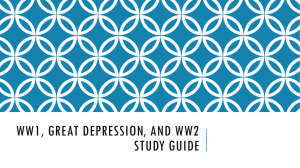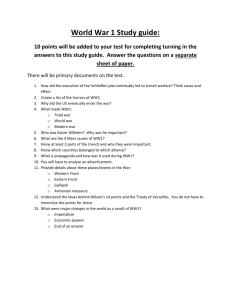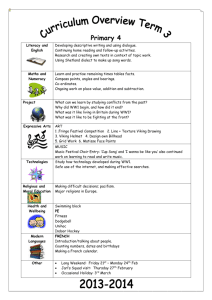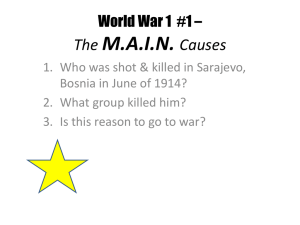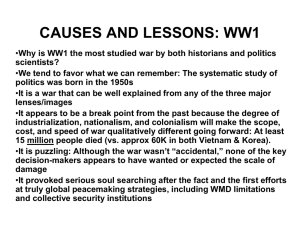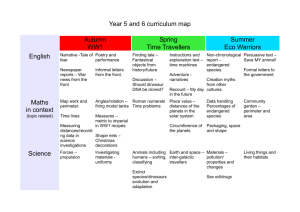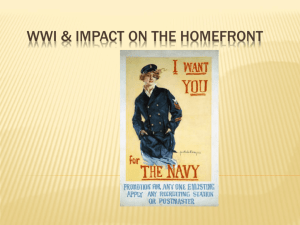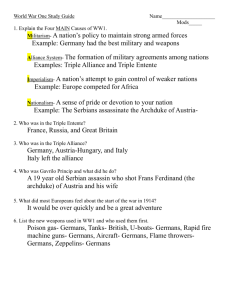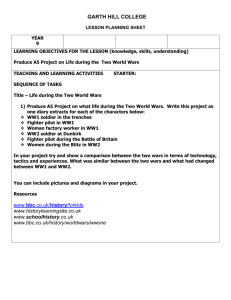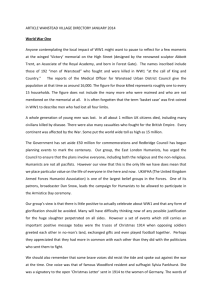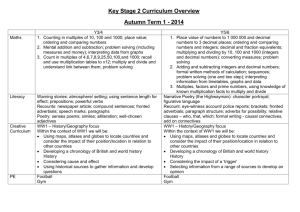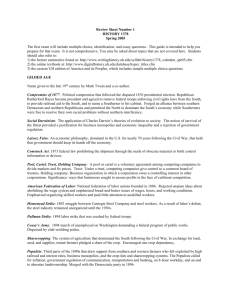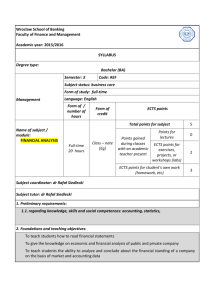WWI Vocabulary
advertisement
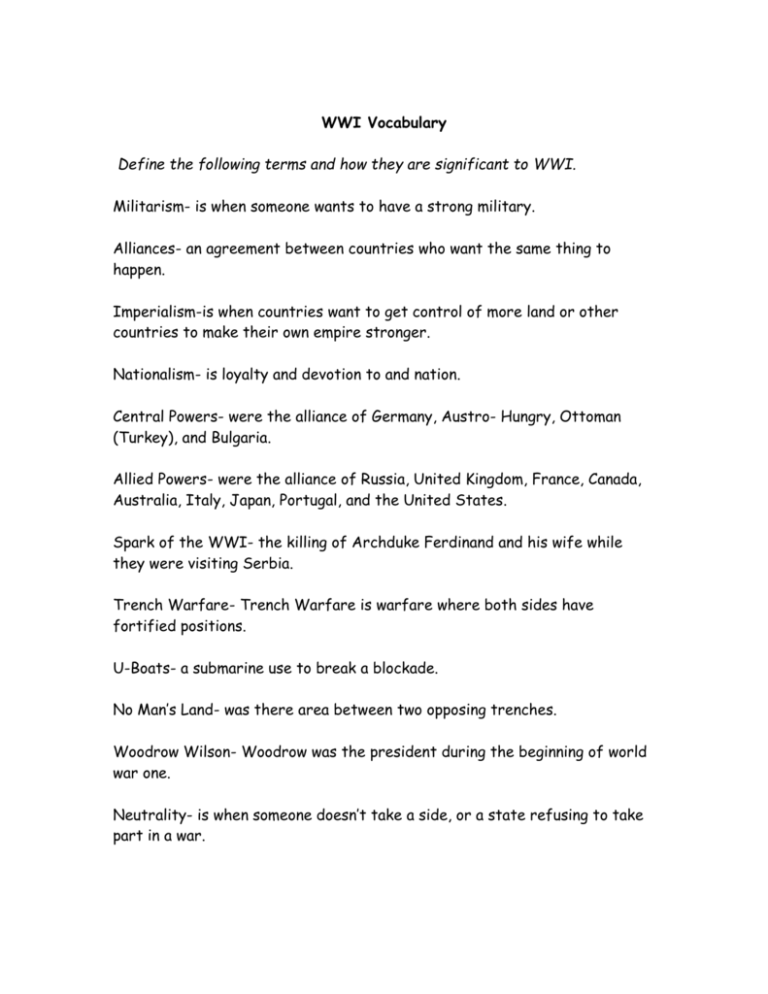
WWI Vocabulary Define the following terms and how they are significant to WWI. Militarism- is when someone wants to have a strong military. Alliances- an agreement between countries who want the same thing to happen. Imperialism-is when countries want to get control of more land or other countries to make their own empire stronger. Nationalism- is loyalty and devotion to and nation. Central Powers- were the alliance of Germany, Austro- Hungry, Ottoman (Turkey), and Bulgaria. Allied Powers- were the alliance of Russia, United Kingdom, France, Canada, Australia, Italy, Japan, Portugal, and the United States. Spark of the WWI- the killing of Archduke Ferdinand and his wife while they were visiting Serbia. Trench Warfare- Trench Warfare is warfare where both sides have fortified positions. U-Boats- a submarine use to break a blockade. No Man’s Land- was there area between two opposing trenches. Woodrow Wilson- Woodrow was the president during the beginning of world war one. Neutrality- is when someone doesn’t take a side, or a state refusing to take part in a war. Zimmerman Telegraph- was a secret communication. Was a coded telegram sent by a foreign secretary of the German empire. Bolshevik (Communist) Russia- Germany made a treaty with Bolshevik Russia. Lusitania- the Lusitania was a British cargo and passenger ship and was sunk on May 7, 1915 during ww1 American Expeditionary Forces- the AEF fought in France during the last year of ww1. The AEF was the American military during ww1. John J Pershing- was made commander-in-chief of the AEF. Convoy system- the convoy system was when merchant ships were grouped together and protected by escort vessels. Eddie Rickenbacker (pg. 280) - was an American fighter ace during world war one. Poison gas- poison gas was used in the trenches to kill many people at once. Gavrilo Princip- was the man who killed Archduke Ferdinand. Franz Ferdinand- Franz Ferdinand was assassinated on June 28, 1914 in Sarajevo. Pacifists- Pacifists believe that violence, even in self defense, is wrong no matter what. Armistice- an armistice is where both sides agree to stop fighting. Rationing- rationing is when you can only get a certain amount of something, during the war they rationed food and gasoline during the end of ww1. Propaganda- propaganda is when information spreads for promoting a cause. Espionage and Sedition Acts- The espionage act was a law which was passed at the beginning of ww1 it made it a crime to say anything to help or promote the enemies success, or to say false things to with the military or naval forces. The sedition act was an amendment to the espionage act. The sedition act forbade Americans to use disloyal or abusive language about the United States government, flag, or armed forces during the war. League of Nations- the League of Nations started at the end of world war one, their goal was to make sure that war never broke out again. Treaty of Versailles- was a peace treaty signed at the end of world war one.
